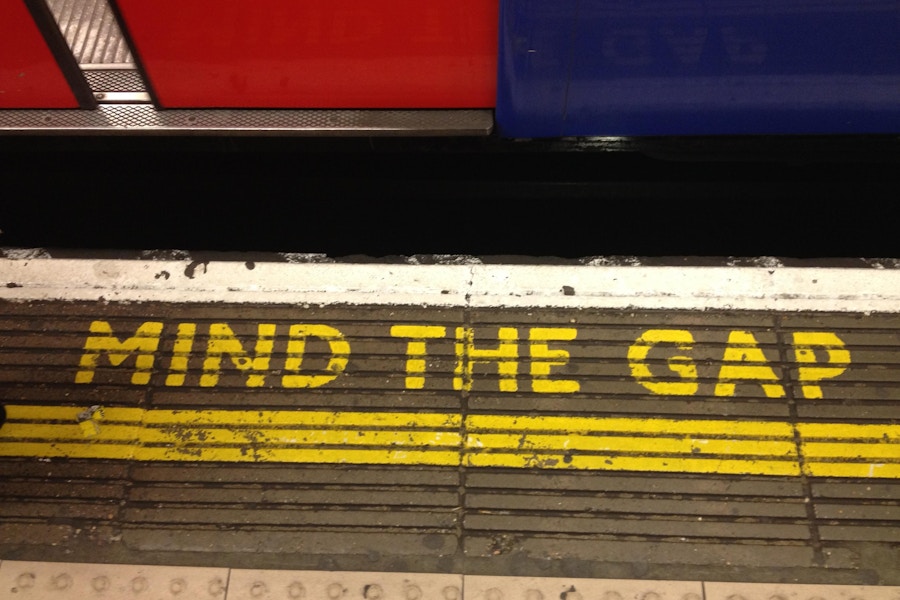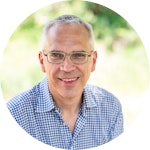Doubt feels like an embarrassing family member that we hope doesn’t show up when our friends are around. It can haunt pastors and Christian leaders, and plague believers to such an extent that their confidence in the kingdom of God is seriously undermined.
When it comes to sharing the faith, it puts God’s representatives in the dreadful dilemma of deciding whether or not to fake it. Should we pretend to uphold something we’re not certain about ourselves? This dilemma was what Dallas Willard was getting at in the role-play interview we shared on Monday this week.
Dallas said, People have been sold this idea that, in order to commit to an idea, they have to be absolutely certain. You don’t have to be certain about anything you’re not certain about. Certainty is not something you can choose.
And then, in a typical Willard way, he said, It is possible to go to heaven with a lot of doubts. People do it every day.
Dallas is being provocative here, but he makes a good point. Misunderstanding doubt is often the reason we see people walk away from the church. They can’t live with the apparent contradiction between what they project to others and who they are on the inside.
I know this is true, because I was that person. Quietly, and without ceremony, I decided to pack my spiritual bags and get out of the church. I couldn’t fake it anymore.
Like the sign on the platform edge of the London Underground, we would do well as a body of believers to “Mind the Gap” — in this case the gap between what we say of ourselves and who we actually are.
This authenticity gap is one of the main reasons people don’t press in on the church like they did on Jesus. He spent much of his time trying to get away from people while we, on the other hand, spend much of our time trying to get people to come. Mind the gap.
One way to turn the tables on doubt is by being more honest about the challenges of following Christ today.
Taking this further, if we were more honest about our doubts then the world might be more honest about its faith. Perhaps we would be surprised how much people outside the church actually believe, if only we would admit that faith can sometimes be a struggle.
This is what authenticity looks like in a world that’s über-sensitive to people who try to fake it. God doesn’t need our protection and our faith doesn’t need propping up. People might even be attracted to our integrity and — crucially — they might be drawn into honest conversations about the kingdom.
So what do we do with our doubts then? Dallas made the crucial point that experience shows again and again that when you allow people to act on the little that they do believe, the rest will follow.
We can’t make ourselves believe anything. We just have to have enough confidence in Jesus, and think well enough of him, to set off into a deeper life with God. Only then do we find out whether it works or not, and so our faith grows.
The first passage we shared a couple of days ago from John Wesley speaks to this point. Here a skeptic asks what religion Wesley preaches and what is it good for? To some ears the answer he gives is unexpected.
Wesley had a much more everyday and experiential take on the message of Jesus than we are often accustomed to today. He talks about a religion that makes people virtuous and happy, easy in themselves and useful to others. It’s a practical kind of Christianity that results in people increasingly enjoying God and themselves, lovers of all, content in their lives.
Who wouldn’t want this good and beautiful life? And if they thought that we followers of Christ, even with our doubts, were in this genuine pursuit, wouldn’t they at least tag along and see what we have to offer?
While the first quote we shared on Wednesday described the good life that’s found in Jesus, the second one spoke to how we can get it. Wesley lamented that without joining together those awakened and training them in the ways of God we are unintentionally creating the conditions for doubt. Starkly put, we are begetting children for the murderer.
Why? Because getting the good life needs a safe environment where we can deal with our doubts and be built up in Christ. How much preaching has there been for these twenty years, but no regular societies, no discipline, no order, or connection?”
He’s talking about the church. Places where we can deal with our doubt in the safety of those who know and love us, and won’t judge us for being vulnerable. Without such places, according to Wesley, the consequence is that nine in ten of those once awakened are now faster asleep than ever. They simply walk away.
Moving to where we can talk openly about the good life would not only sweep up many of our doubts, it would also be more authentic for those who want the same life, but don’t know how to get it. Seek first with integrity what you know of the kingdom and surely the rest will follow.


